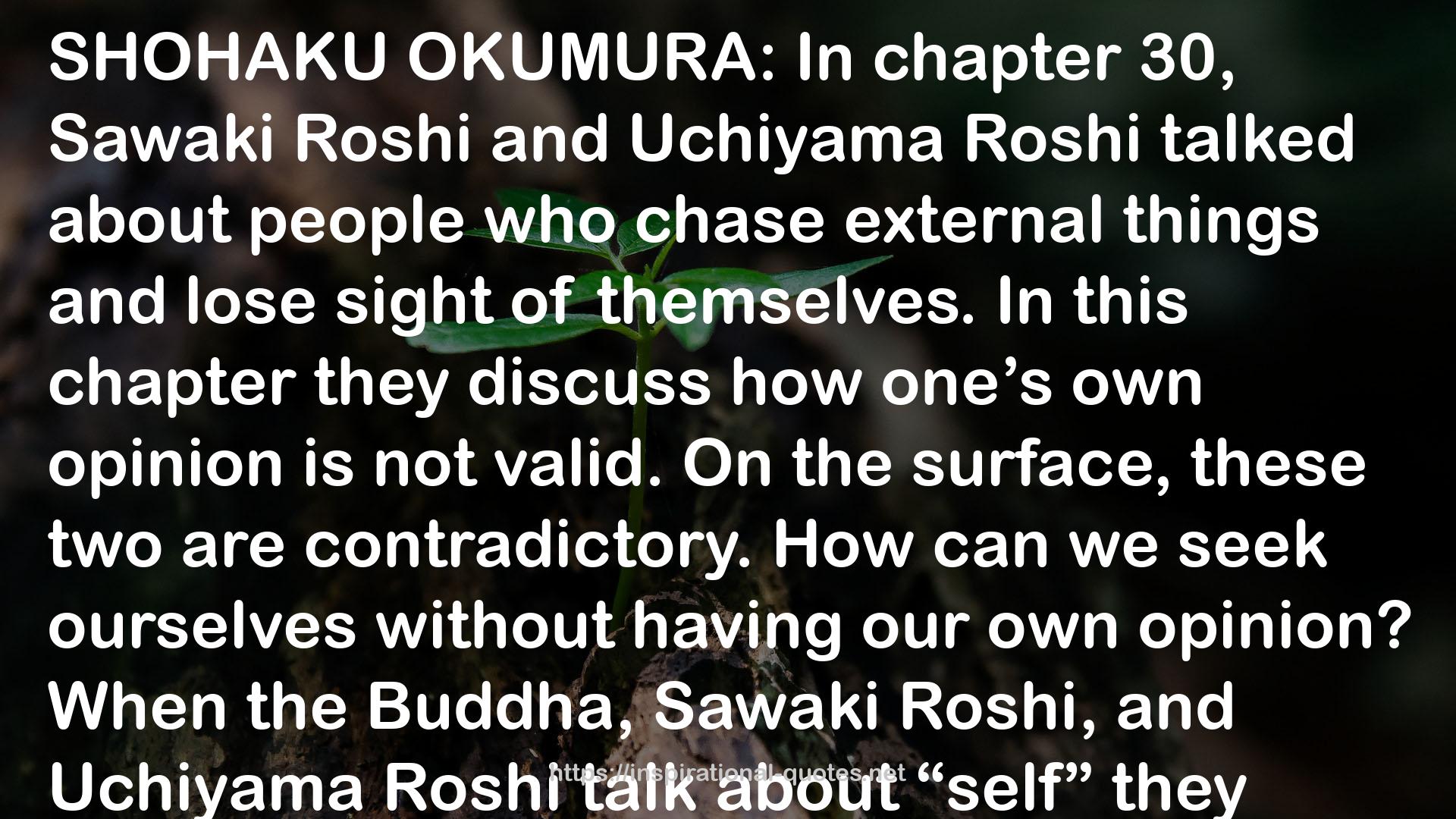" SHOHAKU OKUMURA: In chapter 30, Sawaki Roshi and Uchiyama Roshi talked about people who chase external things and lose sight of themselves. In this chapter they discuss how one’s own opinion is not valid. On the surface, these two are contradictory. How can we seek ourselves without having our own opinion? When the Buddha, Sawaki Roshi, and Uchiyama Roshi talk about “self” they don’t mean the image of ourselves created within the framework of separation between I as subject and others as objects. In Harischandra Kaviratna’s translation of the Dhammapada, the Buddha says, “The self is the master of the self. Who else can that master be? With the self fully subdued, one obtains the sublime refuge, which is very difficult to achieve.” Self is master of the self, but the self still needs to be subdued. In the Japanese translation of this verse, “subdued” is more like “harmonized” or “well tuned.” In Genjokoan, Dogen said, “To study the Buddha way is to study the self. To study the self is to forget the self.” To study the self, we need to forget the self. In these sayings, self is not a fixed, permanent entity separate from other beings. Self is our body and mind, that is, a collection of the five aggregates: form, sensation, perception, formation, and consciousness. These aggregates are always changing, but somehow we create a fixed self-image based on our past experiences and relations with others. We grasp this image as I. This I is an illusion, yet we measure everything based on the tunnel vision of this fictitious self. When we see fiction as fiction, illusion as illusion, they can be useful. Although no map is reality itself, when we know how a map was made, what its distortions are, and how to use it, the map can be a useful tool for understanding reality. However, if we don’t see a model’s limitations, we build our entire lives on a delusion. "
― Kosho Uchiyama , The Zen Teaching of Homeless Kodo
